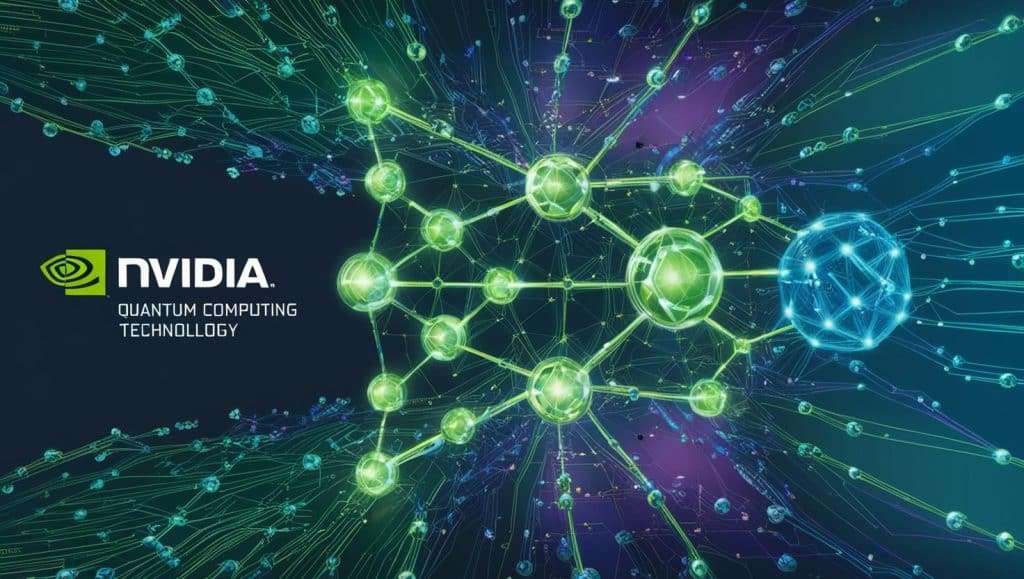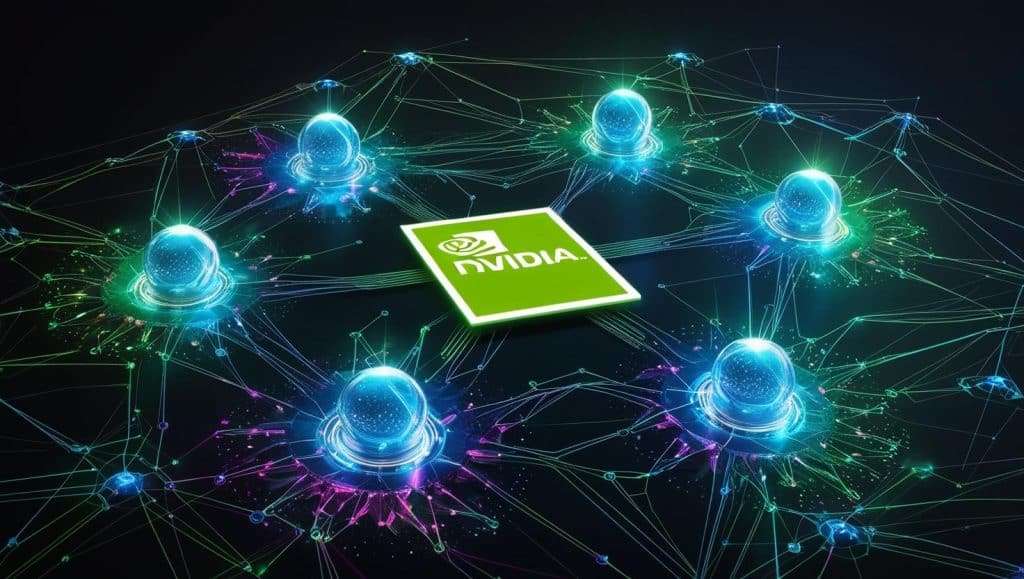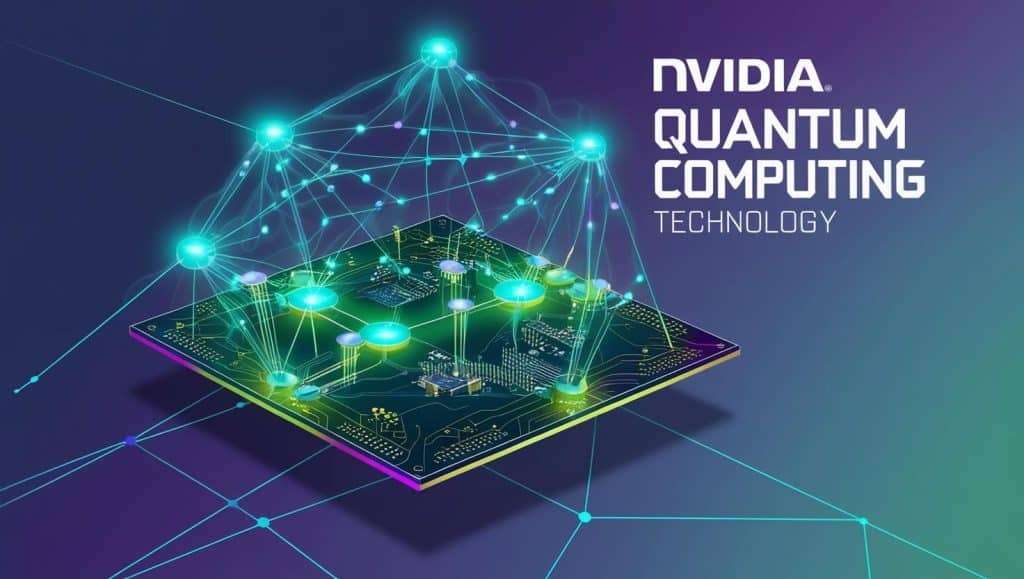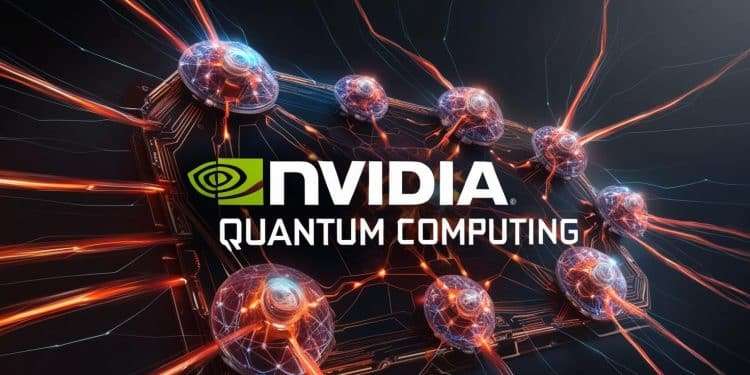Picture this: a computer so powerful it could crack problems in mere seconds that would take today’s fastest machines millions of years to solve. Sounds like something straight out of a sci-fi blockbuster, right? Well, buckle up, because this is the tantalizing promise of quantum computing and it’s closer to reality than you might think.
Recently, Nvidia, a titan in the tech world, dropped a bombshell that’s got everyone buzzing: their CEO announced plans to open a quantum computing lab. Yes, you heard that right Nvidia, the company behind those jaw-dropping graphics cards and AI-powered innovations, is now stepping into the quantum realm. This isn’t just a small side project; it’s a bold leap into what could be the next big revolution in technology.
For years, Quantum computing has been the stuff of dreams for scientists and tech enthusiasts alike. It’s a field where the rules of classical physics get tossed out the window, replaced by the mind-bending principles of quantum mechanics. Companies like IBM, Google, and Microsoft have been pouring resources into this space, racing to unlock its potential. But now, Nvidia’s jumping into the fray, and it’s a move that’s turning heads.
Why? Because Nvidia isn’t just any player they’re a powerhouse known for their graphics processing units (GPUs) that fuel everything from immersive video games to cutting edge artificial intelligence. Their decision to launch a quantum computing lab signals something big: a shift that could redefine how we compute, innovate, and solve some of humanity’s toughest challenges.
So, what’s behind this announcement? Why is Nvidia’s CEO betting on quantum computing now? And what does it mean for the future? In this article, we’re going to unpack it all. We’ll break down what quantum computing is, explore why Nvidia’s stepping up to the plate, and dive into the ripple effects this could have across industries. Whether you’re a tech geek or just curious about where the world’s headed, stick around this is one story you won’t want to miss.

What is Quantum Computing?
Let’s start with the basics: what exactly is quantum computing? If you’re picturing a souped up version of your laptop, think again this is a whole different beast. Traditional computers, like the one you’re probably reading this on, rely on bits. These bits are simple: they’re either a 0 or a 1, like a light switch flipped on or off. Everything digital your emails, your Netflix queue, your cat memes boils down to these binary building blocks.
Quantum computing, though, flips the script. Instead of bits, it uses quantum bits, or “qubits.” Here’s where it gets wild: thanks to a quantum trick called superposition, qubits can be 0, 1, or both at the same time. Imagine spinning a coin in the air it’s not just heads or tails, but a blur of both until it lands. That’s superposition in action, and it means quantum computers can juggle a mind-boggling number of possibilities all at once. Add in another quantum quirk called entanglement where qubits become linked so that tweaking one instantly affects another, no matter the distance and you’ve got a recipe for insane computational power.
Here’s a real world analogy: suppose you’re trying to find the quickest way through a maze with a million paths. A regular computer would trudge through each route, one by one, taking ages to find the winner. A quantum computer? It could check all those paths simultaneously, spitting out the answer in a flash. That’s the kind of game changing potential we’re talking about speed and efficiency on a scale we’ve never seen before.
Now that we’ve got a handle on Quantum computing, let’s shift gears and see why Nvidia, a company famous for GPUs, is diving headfirst into this quantum adventure.
Nvidia’s Venture into Quantum Computing
If you know Nvidia, you probably associate them with stunning graphics in video games or the AI breakthroughs powering self-driving cars and chatbots. Since 1993, they’ve been the go-to name for graphics processing units those little chips that make your gaming rig sing and help researchers crunch massive datasets. But Nvidia’s not content to rest on its laurels. With their CEO’s recent announcement about opening a quantum computing lab, they’re clearly aiming to conquer new heights.
Why quantum computing, and why now? For one, Nvidia’s already a master of high-performance computing. Their GPUs aren’t just for pretty pictures they’re workhorses in data centers, accelerating everything from AI training to scientific simulations. Quantum computing feels like a natural next step, a chance to flex their expertise in a field that’s poised to explode. But let’s be real: quantum computing isn’t just about faster chips. It’s a radical departure, demanding mastery over qubits, ultra-cold environments, and some seriously complex physics.
So, what’s Nvidia bringing to the table? Unlike some competitors building quantum computers from the ground up, Nvidia’s likely playing to its strengths: hardware and software integration. Think quantum algorithms that optimize qubit performance, or tools that bridge quantum and classical systems. Their experience with CUDA a platform that made GPU computing accessible to developers hints at what they might do here: create user-friendly frameworks to tame the wild beast of quantum tech.
Timing’s everything, too. Governments and tech giants are pumping billions into quantum research, chasing what’s been dubbed “quantum supremacy” the moment a quantum machine outstrips anything classical. Nvidia’s CEO sees the writing on the wall: quantum computing’s heating up, and they want in on the action. This lab isn’t just a research hub; it’s a statement that Nvidia’s ready to lead, not follow.

The Significance of Nvidia’s Quantum Computing Lab
Nvidia’s quantum computing lab isn’t just another pin on the map it’s a big deal. First off, it’s Nvidia we’re talking about: a company with deep pockets, top-tier talent, and a knack for turning tech dreams into reality. Their expertise in crafting high-performance chips could crack some of quantum computing’s toughest nuts like stabilizing qubits or shrinking the fridge-sized setups today’s systems need.
But it’s more than just hardware. This lab could become a melting pot of ideas, pulling in researchers, engineers, and even policymakers. Collaboration’s key in a field this tricky, and Nvidia’s got the clout to make it happen. Imagine a space where quantum breakthroughs get fast-tracked, standards get set, and the whole industry levels up that’s the potential here.
Then there’s the AI angle. Nvidia’s already a heavyweight in artificial intelligence, and quantum computing could supercharge that. Tasks like optimizing neural networks or spotting patterns in massive datasets? Quantum computers thrive on that stuff. If Nvidia can marry their AI know how with quantum power, we might see tools that redefine industries think smarter financial models, faster drug research, or logistics that run like clockwork.
Plus, Nvidia’s got a knack for making tech approachable. Quantum computing can feel like a secret club for PhDs, but if anyone can crack it open for the rest of us, it’s the folks who simplified GPU programming. Their lab could churn out platforms or software that let more people dip their toes into quantum waters, democratizing a tech that’s been locked in ivory towers.
Future Implications and Expectations
So, where’s this all headed? In the near term, Nvidia’s lab could spark some serious R&D fireworks better qubits, sharper algorithms, maybe even a hybrid system that blends quantum and classical computing. It’s early days, but every step forward counts.
Zoom out a bit, and the possibilities get juicy. Picture healthcare: quantum computers could model molecules so precisely that new drugs hit the market faster, saving lives and cutting costs. In finance, they might crunch market data to optimize trades or sniff out risks in ways today’s systems can’t touch. Cybersecurity’s a double-edged sword quantum could bust open current encryption, but it could also forge unbreakable new codes.
Go even further, and we’re talking world changing stuff. Climate modeling that nails predictions down to the decimal point. Supply chains so efficient they slash waste and emissions. Even cosmic questions like how black holes tick could get answers. It’s heady, ambitious, and yeah, a little far off. Quantum tech’s still wrestling with errors and scale, but Nvidia’s muscle could speed things up.
What’s certain is this: Nvidia’s not here to mess around. Their CEO’s betting on a future where quantum computing’s not just a lab toy but a real-world powerhouse. And if they pull it off, we’re all along for the ride.

Conclusion
Nvidia’s decision to open a quantum computing lab isn’t just news it’s a signal flare for what’s coming. With their CEO at the helm, they’re leveraging decades of high-performance computing chops to tackle quantum’s wild frontier. This isn’t a sideline gig; it’s a full-on commitment to shaping tech’s next chapter.
We’ve covered the what (quantum computing’s insane potential), the why (Nvidia’s perfect timing and toolkit), and the so-what (a future packed with possibilities). From healthcare to finance to the mysteries of the universe, Nvidia’s lab could unlock doors we didn’t even know were there. Sure, the road’s bumpy quantum tech’s got hurdles aplenty but with a player like Nvidia in the game, the odds feel a little better.
For you whether you’re a tech junkie, a business owner, or just someone who loves a good “what if” this is worth watching. Nvidia’s quantum computing lab might just be the spark that lights up tomorrow. So, keep your eyes peeled; the future’s getting interesting.













